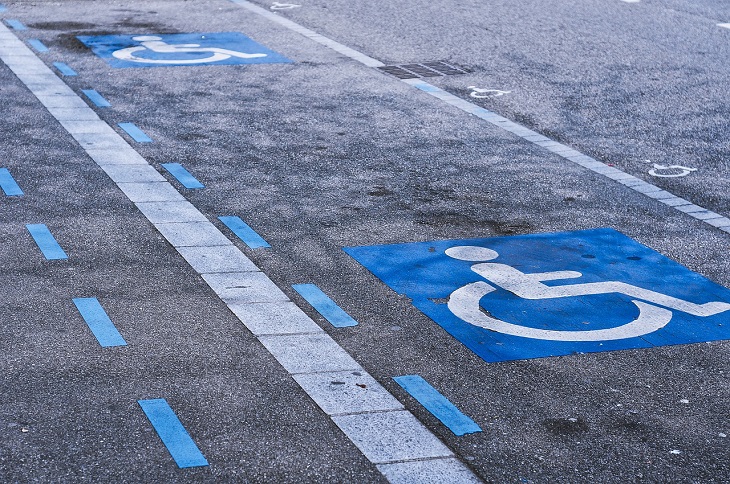Hawaii has a well-managed and user-friendly disabled parking program. The Aloha State is well stocked with disabled parking infrastructure, which improves accessibility to public and private amenities and buildings for people with various disabilities.
So what are the qualifying conditions for a disabled parking placard in Hawaii? What types of disabled parking permits are available in Hawaii? And how do you apply for a disabled parking permit in Hawaii? Read on for all the info you need.
Qualifying Conditions For A Disabled Parking Placard In Hawaii
So, what qualifies for a disability placard in Hawaii? There are several conditions that will qualify you for a disabled parking permit in Hawaii, including one or more of the following:
- You cannot walk 200 feet without having to stop and rest due to an arthritic, neurological, orthopedic, oncological, renal, or vascular condition
- You have a respiratory condition such that your forced expiratory volume for one second, when measured by spirometry, is less than one liter, or your arterial oxygen tension is less than sixty mm/hg on room air at rest
- You have a heart condition designated as Class III or Class IV by the American Heart Association
- You cannot walk without the aid of a brace, crutch, walker, artificial lower limbs, cane, another person, or wheelchair
- You have a condition that requires the use of a portable oxygen tank

Hawaii’s list of qualifying conditions is relatively limited compared to many other US states. Unlike in other states, in Hawaii you do not qualify for a disabled parking permit if you have a visual impairment, have an upper limb amputation, are deaf, are pregnant, or if you have a mental illness or a behavioral, learning, intellectual, or developmental disability.
How Hard Is It To Get A Disability Placard In Hawaii?
If you have a condition that qualifies you to get a Hawaii disabled parking permit, the application process is straightforward. However, unlike in most other US states, application forms cannot be submitted online and must instead be submitted by mail or in person at a Satellite City Hall.
What Types of Disabled Parking Permits Are Available In Hawaii?
The following types of disabled parking permits are available in Hawaii:
- Long-term disability placards (blue) and license plates – for people whose disabilities are expected to last at least six years
- Temporary disability placards (red) – valid for up to six months
How Do I Get A Disabled Parking Permit In Hawaii?
The first step when applying for a Hawaii disabled parking permit is to have a consultation with a state-licensed physician. This can be done remotely using the Dr. Handicap online clinic.
Once the physician has verified your disability, they will email you a certified copy of the Hawaii Disabled Parking Permit Application Form (form PA-3). You can then complete the form and submit it to the Hawaii Department of Health, either in-person at your local Satellite City Hall or by mail to:
Motor Vehicle Licensing & Permits
ATTN: Special Services Section
P.O. Box 30310
Honolulu, HI 96820
How Do I Get A Disabled License Plate In Hawaii?
You can request a disabled license plate in Hawaii if you have a long-term disability and qualify for a permanent disabled parking permit. Simply request a disabled license plate on your application form. Disabled Veterans also qualify for disabled license plates in Hawaii.

Do You Have To Pay For Parking With A Disability Placard In Hawaii?f
Hawaii disabled parking permit holders can park for free in designated disabled parking spaces. These spaces are signposted and marked with the International Symbol of Access.
Parking in metered spaces in Hawaii is not free for permit-holders. However, some people qualify for a Disabled Paid Parking Exemption Permit (DPPEP). A DPPEP entitles its holder to park in metered spaces for free for up to 2.5 hours.
To qualify for a DPPEP you must:
- Be unable to reach above your head to a height of 42 inches from the ground due to a lack of finger, hand, or upper extremity strength or mobility;
- Be unable to approach a parking meter due to use of a wheelchair or other mobility device; or
- Be unable to manage, manipulate, and insert coins, bills, or cards in a parking meter or pay station due to a lack of fine motor control in both hands.
To apply for a DPPEP, you can submit an application form to:
DCAB
P.O. Box 3377
Honolulu
HI 96801
Featured image by hmmunoz512 on Pixabay







